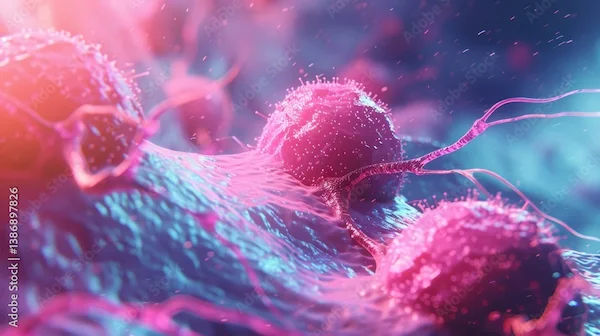Liver Cancer Medications and Treatment Options
know about liver cancer, medications, treatment, different types of therapies and management of possible side effects. Learn about lifestyle tips to manage liver cancer and more.


Introduction
Facing a liver cancer diagnosis can be overwhelming, but understanding your treatment options can help you make informed decisions about your care. The symptoms in early sage are rare, later symptoms like body weight loss, stomach ache and vomiting can appear.
This guide explains the different medications and treatments available for liver cancer in simple, easy-to-understand terms.
Understanding Liver Cancer
Liver cancer occurs when abnormal cells grow uncontrollably in the liver. It can be primary (starting in the liver) or secondary (spreading from other organs). The most common type is hepatocellular carcinoma (HCC).
Consult Top Specialists for Personalised Tips
Symptoms of Liver Cancer
Early stages may not show symptoms, but as cancer progresses, you may experience:
Unexplained weight loss
Loss of appetite
Nausea or vomiting
Pain or swelling in the abdomen
Jaundice (yellowing of skin and eyes)
Fatigue
If you notice these symptoms, consult a doctor for proper diagnosis.
Treatment Options for Liver Cancer
Treatment depends on the stage of cancer, liver function, and overall health. Here are the main options:
1. Surgery
Partial Hepatectomy – Removal of the tumor and a portion of the liver (if the liver is healthy enough).
Liver Transplant – Replacing the diseased liver with a healthy donor liver (suitable for early-stage cancer).
2. Localized Treatments (Non-Surgical)
These target cancer cells without removing them surgically:
Radiofrequency Ablation (RFA) – Uses heat to destroy cancer cells.
Microwave Ablation – Similar to RFA but uses microwaves.
Cryoablation – Freezes cancer cells.
Ethanol (Alcohol) Injection – Injects alcohol directly into the tumor to kill cancer cells.
Transarterial Chemoembolization (TACE) – Delivers chemotherapy directly to the liver while blocking blood supply to the tumor.
3. Radiation Therapy
Uses high-energy rays to kill cancer cells. Stereotactic body radiotherapy (SBRT) is a precise form used for liver cancer.
4. Targeted Therapy
These drugs attack specific weaknesses in cancer cells:
Sorafenib (Nexavar) – Slows tumor growth by blocking blood supply.
Lenvatinib (Lenvima) – Works similarly to Sorafenib. Regorafenib (Stivarga) – Used if Sorafenib stops working.
Cabozantinib (Cabometyx) – Helps in advanced liver cancer.
5. Immunotherapy
Boosts the immune system to fight cancer:
Nivolumab (Opdivo)
Pembrolizumab (Keytruda)
Atezolizumab (Tecentriq) + Bevacizumab (Avastin) – A combination therapy for advanced liver cancer.
6. Chemotherapy
Less commonly used for liver cancer but may be an option if other treatments fail.
Managing Side Effects of Treatment
Different treatments can cause side effects, such as:
Fatigue
Nausea
Skin rashes (from targeted therapy)
Diarrhea
Loss of appetite
Tips to Manage Side Effects:
Eat small, frequent meals.
Stay hydrated.
Rest when needed.
Use prescribed medications to control nausea or pain.
Lifestyle and Dietary Tips for Liver Cancer Patients
A healthy lifestyle can support treatment and recovery:
Eat a balanced diet (lean proteins, whole grains, fruits, and vegetables).
Limit alcohol (as it damages the liver).
Avoid processed foods and excess salt.
Exercise gently (walking, yoga) to maintain strength.
Get vaccinated for hepatitis B if not already protected.
When to Seek Help?
If you experience:
Severe pain
Persistent vomiting
High fever
Worsening jaundice
Contact your doctor immediately.
Final Thoughts
Liver cancer treatment has advanced significantly, offering hope for many patients. Early detection and the right treatment plan can improve outcomes. Stay informed, follow medical advice, and maintain a positive outlook as only your health journey matters.
Consult Top Specialists
Consult Top Specialists for Personalised Tips

Dr.sanchayan Mandal
Oncologist
17 Years • MBBS, DrNB( MEDICAL ONCOLOGY), DNB (RADIOTHERAPY),ECMO. PDCR. ASCO
Kolkata
Dr. Sanchayan Mandal Oncology Clinic, Kolkata

Dr. Sanchayan Mandal
Oncologist
17 Years • MBBS, DNB Raditherapy, DrNB Medical Oncology
East Midnapore
VIVEKANANDA SEBA SADAN, East Midnapore

Dr Sunita Samleti
Oncologist
18 Years • M.D. (Pathology)- TN Medical College, Mumbai University, Mumbai, Mar 2005 M.B.B.S. Grant Medical College, Mumbai University, Mumbai, Oct 1999
Chinagadila
Apollo Hospitals Health City Unit, Chinagadila

Dr Gowshikk Rajkumar
Oncologist
10 Years • MBBS, DMRT, DNB in Radiation oncology
Bengaluru
Apollo Clinic, JP nagar, Bengaluru

Dr. Gopal Kumar
Head, Neck and Thyroid Cancer Surgeon
15 Years • MBBS, MS , FARHNS ( Seoul, South Korea ), FGOLF ( MSKCC, New York )
Delhi
Apollo Hospitals Indraprastha, Delhi
(25+ Patients)
Consult Top Specialists

Dr.sanchayan Mandal
Oncologist
17 Years • MBBS, DrNB( MEDICAL ONCOLOGY), DNB (RADIOTHERAPY),ECMO. PDCR. ASCO
Kolkata
Dr. Sanchayan Mandal Oncology Clinic, Kolkata

Dr. Sanchayan Mandal
Oncologist
17 Years • MBBS, DNB Raditherapy, DrNB Medical Oncology
East Midnapore
VIVEKANANDA SEBA SADAN, East Midnapore

Dr Sunita Samleti
Oncologist
18 Years • M.D. (Pathology)- TN Medical College, Mumbai University, Mumbai, Mar 2005 M.B.B.S. Grant Medical College, Mumbai University, Mumbai, Oct 1999
Chinagadila
Apollo Hospitals Health City Unit, Chinagadila

Dr Gowshikk Rajkumar
Oncologist
10 Years • MBBS, DMRT, DNB in Radiation oncology
Bengaluru
Apollo Clinic, JP nagar, Bengaluru

Dr. Gopal Kumar
Head, Neck and Thyroid Cancer Surgeon
15 Years • MBBS, MS , FARHNS ( Seoul, South Korea ), FGOLF ( MSKCC, New York )
Delhi
Apollo Hospitals Indraprastha, Delhi
(25+ Patients)


